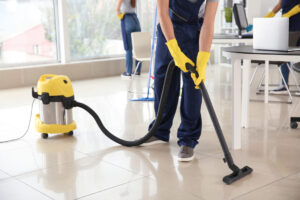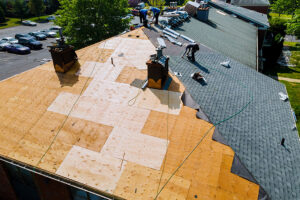The hospitality industry is a complex and multifaceted one, with hotels playing a pivotal role in it. Hotel management involves a range of financial activities, from budgeting and revenue management to payroll and inventory control. While most hotels strive for financial transparency and integrity, sometimes the need for forensic accounting becomes essential. Forensic accounting is a specialized field that deals with investigating financial irregularities, fraud, and other financial discrepancies. In this blog post, we will explore the scenarios in which a hotel might need forensic accounting near your location, the benefits of forensic accounting in the hospitality industry, and the process of hiring a forensic accountant.
Financial Irregularities in Hotels
Embezzlement and Theft
Hotels often deal with large sums of money in cash and electronic transactions. This makes them vulnerable to embezzlement and theft by employees or external parties. A forensic accountant can help identify irregularities in financial records and trace missing funds.
Revenue Leakages
Revenue leakage can occur through various channels, such as underreporting of sales, unrecorded transactions, or misallocation of expenses. Forensic accountants can help plug these leaks and ensure that the hotel is maximizing its revenue potential.
Fraudulent Bookkeeping
Some hotels may engage in fraudulent bookkeeping practices to underreport their income and evade taxes. Forensic accountants can uncover such practices and help the hotel comply with tax regulations.
Employee Misconduct
Payroll Fraud
Payroll is a significant expense for hotels, and employee misconduct can lead to payroll fraud, such as ghost employees, hours inflation, or false reimbursements. Forensic accountants can verify the accuracy of payroll records and identify any fraudulent activities.
Vendor and Supplier Fraud
Corruption, kickbacks, and conflicts of interest can lead to overpayments to vendors and suppliers. Forensic accountants can examine procurement and payment processes to detect fraudulent activities and recover any losses.
Contract Disputes
Disputes with Management Companies
Hotels often enter into agreements with management companies for operational and financial management. Disputes may arise regarding revenue sharing, fee calculations, or financial reporting. Forensic accountants can assist in resolving these disputes and ensuring fair financial dealings.
Breach of Franchise Agreements
Hotels operating under a franchise brand must adhere to specific financial and operational standards. A forensic accountant can help determine if the hotel is in compliance with franchise agreements, avoiding potential penalties and litigation.
Regulatory Compliance
Compliance with Anti-Money Laundering (AML)
Regulations Hotels are required to comply with AML regulations to prevent money laundering. Forensic accountants can review financial transactions and identify any suspicious activities, ensuring the hotel remains compliant with the law.
Compliance with Tax Regulations
Hotels are subject to various tax regulations at the local, state, and federal levels. A forensic accountant can help hotels prepare accurate financial statements and tax returns, reducing the risk of audits and penalties.
Benefits of Forensic Accounting in the Hospitality Industry
Fraud Prevention and Detection
Forensic accountants have the skills and expertise to prevent and detect fraudulent activities, protecting the hotel’s financial integrity.
Improved Financial Transparency
Through forensic accounting, hotels can improve financial transparency, making it easier to identify and rectify irregularities.
Cost Savings
By identifying and addressing financial discrepancies, hotels can save significant amounts of money that would otherwise be lost due to fraud or mismanagement.
Legal Support
Forensic accountants can provide expert testimony and support during legal proceedings, should the need arise.
How to Hire a Forensic Accountant Near You
Identify Your Needs
Determine the specific financial concerns and issues that require the expertise of a forensic accountant. This will help you find a professional with the right skills and experience.
Search for Local Experts
Look for forensic accountants or firms in your area. Local experts can provide more convenient and timely support.
Check Qualifications
Ensure that the forensic accountant is a certified professional with experience in the hospitality industry.
Conduct Interviews
Interview potential candidates to assess their knowledge, communication skills, and approach to problem-solving.
Discuss Fees and Agreements
Clarify the fees, payment structure, and terms of engagement with the forensic accountant. Make sure you have a clear understanding of the services they will provide.
Conclusion
In the dynamic and competitive world of hospitality, hotels face a range of financial challenges and risks. Forensic accounting near me can be an invaluable resource for identifying and resolving financial irregularities, ensuring compliance with regulations, and safeguarding the hotel’s financial well-being. Whether it’s addressing employee misconduct, resolving contract disputes, or enhancing financial transparency, the expertise of a forensic accountant can make a significant difference in the success and sustainability of a hotel business. If you’re a hotel owner or manager, consider the benefits of forensic accounting, and don’t hesitate to seek out a qualified forensic accountant near your location to protect and optimize your financial operations.









